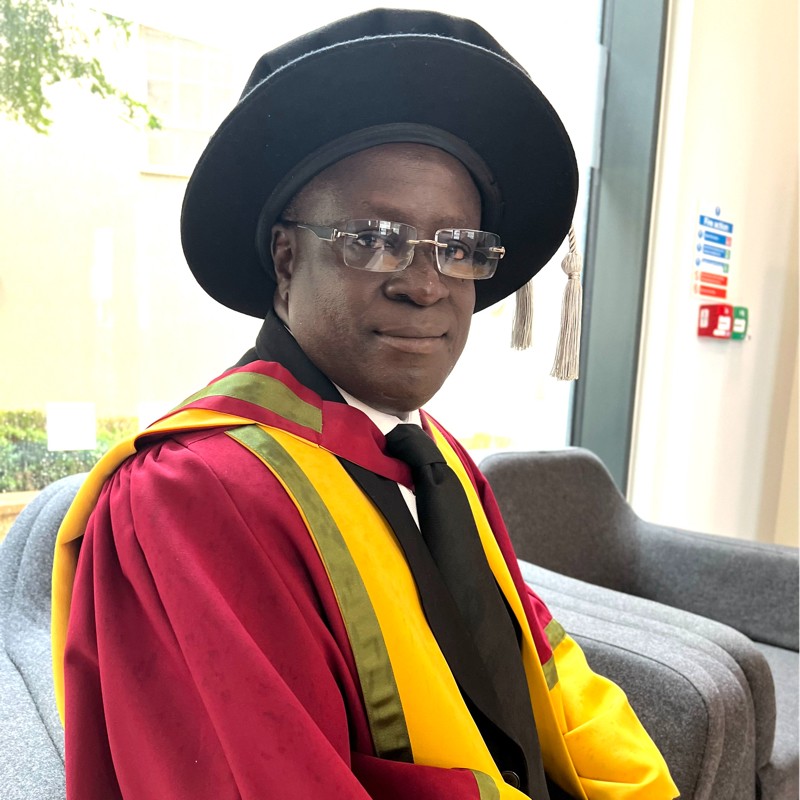
My Doctorate experience at the University of Bath, United Kingdom (2015-2023) By Dr Babatope Babalobi
My motivation
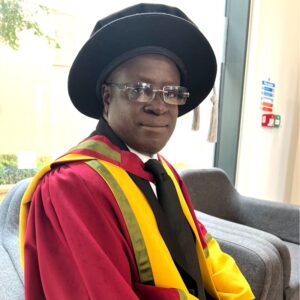
I was admitted to the University of Bath, United Kingdom, in 2015 to study for a Doctorate in Health. The motivation to pursue the Doctorate arose from the need to improve my educational credentials to position me for better job opportunities. As of the time I got admission, my first degree was 28 years old, and my Master’s degree was about three years old.
The absence of a Doctorate in my educational qualification limited my career progression. I work as a consultant in the development sector, and there are some research-based jobs one may be unable to secure unless you possess a Doctor in Philosophy (PhD) degree. By the time I commenced the programme, I could be described as an expert and consultant in Nigeria’s Water, Sanitation, and Hygiene (WASH) sector. As an expert, you are typically expected to have the highest educational qualification.
The deciding moment happened during a National conference – the Nigeria Environment Centenary Symposium organised by the University of Ibadan’s Department of Environmental Health Sciences in conjunction with the Nigerian Environmental Study Action Team (NEST), in 2014. I was privileged to have been invited to speak, and of all the speakers, only a few did not have a PhD. All the other speakers were Doctors and Professors. Not having a Doctorate Degree and being addressed as a Mr while other speakers were addressed as either Dr. or Prof. was a personal and professional embarrassment. This was the day I decided to pursue a Doctorate programme, though this had been my desire.
Why I studied at the University of Bath, United Kingdom
One of the reasons I opted to study abroad was that I could not gain admission to study for a PhD in any Nigerian University because I had a professional Master’s, and no Nigerian university offered a Professional Doctorate. I was halfway through my Master’s studies at the University of Lagos (UNILAG) when I learned that an academic Master’s differed from a Professional Master’s. I was also informed that a holder of a professional Master’s degree could not advance to an academic Doctorate (unless the candidate does an academic Master’s in philosophy programme (MPhil), which did not excite me).
Like many universities in Europe and America, I discovered that the University of Bath offers professional doctorate programmes. I was, therefore, happy that a foreign, higher-ranked university offered me the opportunity to advance to a PhD with my professional Master’s. I must say that it beats my imagination why Nigerian universities offer professional Master’s programmes without the corresponding professional doctorate programmes.
Only a thin line exists between a Doctor of Philosophy (PhD) and a Professional Doctorate. PhDs are theory-driven and academic-based, while Professional Doctorates are practice-based, allowing working professionals to conduct research that proffers solutions to issues in professional practice. PhDs focus on the gown, while professional doctorates focus on the town.
What I studied at the University of Bath is a Professional Doctorate, not a PhD. I needed a Doctorate to improve my research skills to proffer solutions to professional issues rather than propound theories alone. In any case, a Professional Doctorate was most suitable for me because I have never worked in academia, and I do not intend to do so in the remaining years of my career. I was forty-nine when I commenced my studies, possibly too late to start an academic career.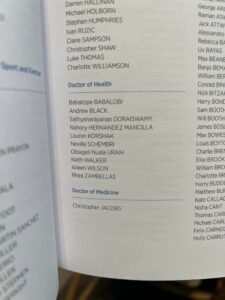
At the commencement of the programme at the University of Bath, there was a discussion among my colleagues about whether we should stick to the Professional Doctorate programme or switch to the more commonly known PhD. Many were concerned that a Doctor of Philosophy was more popular, recognised, and widely accepted than a Professional Doctorate and at that time, the University offered those willing to switch to indicate interest.
Of course, a Doctor of Philosophy also gives the added advantage of an opportunity to work in an academic environment. Again, some institutions do not regard a professional Doctorate as equivalent to a Doctor of Philosophy. However, I was satisfied that I needed a Professional Doctorate, not a Doctor of Philosophy, because of the earlier-mentioned reasons. I, therefore, continued with the programme.
Why did I choose the University of Bath?
First, when I was seeking admission to the Doctorate programme, online studies were unpopular, unlike now, where post-Covid challenges have made online studies a common practice. I wanted to study in a highly-ranked institution so my Doctorate would be well respected. Upon my research, I found that the University of Bath ranked well in quality education and student satisfaction. Recently, it was ranked fifth out of 130 UK universities in the Complete University Guide 2024.
Secondly, I wanted a flexible programme as I had to keep working because of family responsibilities and school fees. The Professional Doctorate in Health programme suited me because it was a part-time programme, offering predominantly web learning and limited physical learning in the University.
It also offered an opportunity to complete the programme at a pace convenient for the Student within a minimum of three years and a maximum of eight years. A student was required to visit the campus at least once for the one-week summer school in the first two years. All other interactions with academic staff, including lectures, assignment submissions, and meetings, were online.
Though web-based, the programme turned out to be academically and mentally exhausting. Of the twenty people initially admitted for the programme in the 2015 set, only seven crossed the finish line. There is also one remaining Student who is yet to graduate. About twelve of the initial intakes have dropped off for one reason or the other.
Thirdly, the fee for the University of Bath’s part-time professional Doctorate in Health programme was lower than what other U.K. universities charged for a similar course. I considered it more affordable. On average, I paid a little less than six thousand pounds annually as tuition fees, which was far lower than several Universities that charged 10,000 pounds for first degrees, masters, and PhDs.
Of course, U.K. education was more appealing because of the commonwealth affinity between Nigeria and the U.K. and the shorter distance between both countries, compared to North America. Also, getting a U.K. study visa was easier than securing visas for other European and North American countries.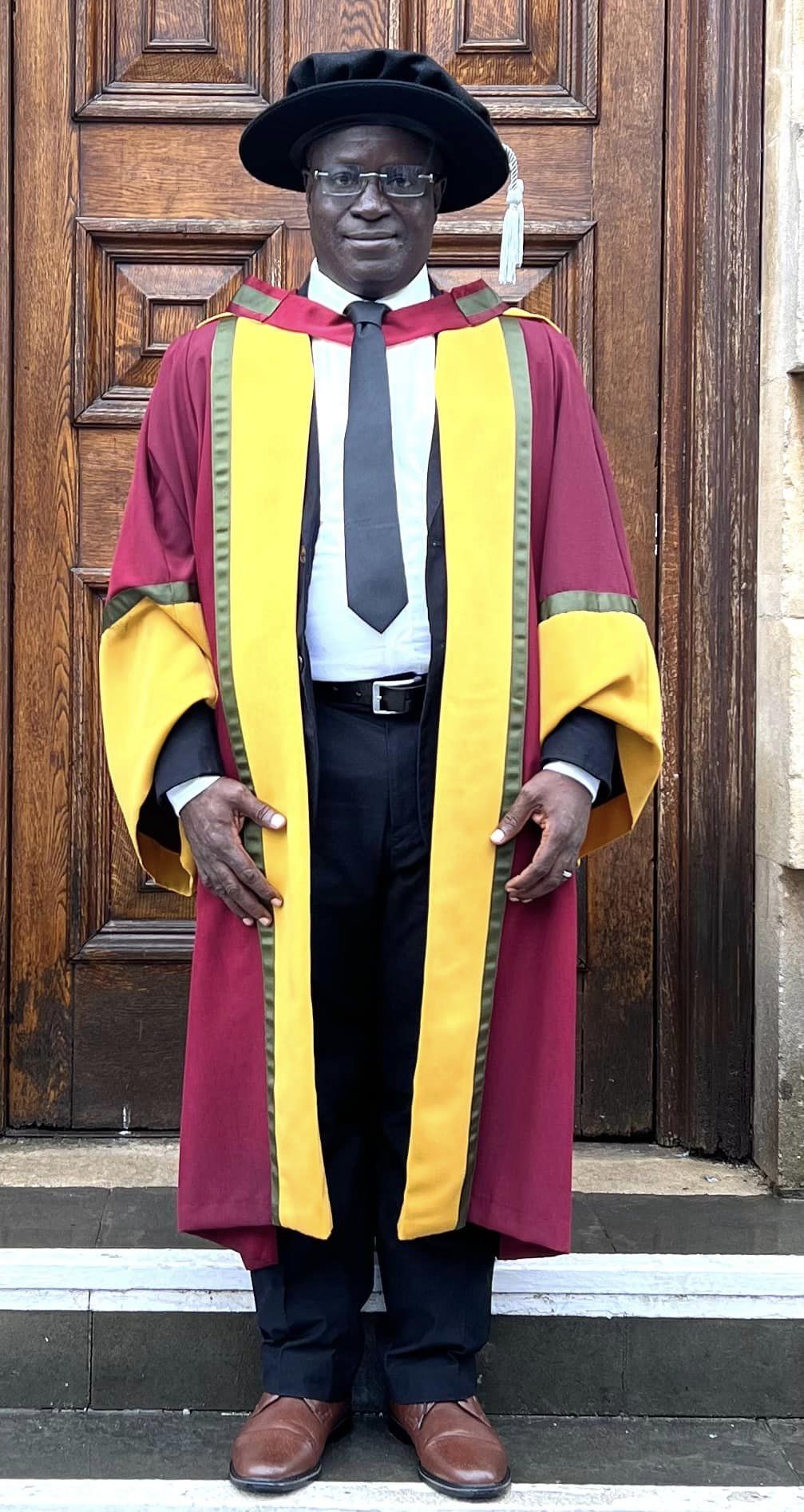
Why I Choose Health Studies
My first degree was in journalism, but I have never practised seriously as a journalist. I have been a development worker interested in Water, Sanitation, and hygiene (WASH) issues since 2001. The need for a professional certificate in water resources and environment discipline motivated me to acquire a Master’s in Environmental Management from the University of Lagos, Nigeria, in 2012. The Doctorate in Health is the nearest discipline to my Master’s degree and area of Health practice. It is widely known that there is a strong correlation between access to safe water and sanitation services and public Health. Thus, I chose a Doctorate in Health to increase my knowledge of water issues related to Health.
Description of the Course
The Doctor of Health programme of the University of Bath Professional Doctorate in Health is in three phases:
- In Phase One or Year One, you are taught Health policies, research methodologies and the epistemological and ontological foundation of health research.
- In Phase two or year two. The basic assignment is to present and defend a research portfolio accessed in a Transfer Interview. If you are successful in the transfer Interview, you proceed into Phase three, which focuses on writing and submitting a thesis accessed at a Viva voce.
- Phases one and two typically take one year each, while Phase Three could last between two to six years.
- The programme for the first two phases is delivered through audio, video, and textual resources published on the University’s Moodle site. Students access and submit assignments online. In year 2, each Student is also attached to a Personal Development Advisor (PDA) who assists the Student in developing a research portfolio.
- Phase three research study is supervised by two supervisors – an academic supervisor based at the University of Bath and a practice-based Supervisor based in the Student’s country of residence. The academic Supervisor leads the research team, while the practice-based Supervisor provides in-country support.
My Doctorate course at the University of Bath was a tremendous learning experience which cuts across diverse factors.
Customer service
There is a dramatic difference between the work culture of administrative and academic staff in Nigeria and U.K. universities. In Nigeria, I was used to university administrative and academic staff (generally) being rude, saucy, impolite, lazy, uncourteous, impatient, and exploitative. The first cultural shock was when the administrative staff in the University of Bath’s finance unit treated me respectfully and politely. They helped resolve all my challenges in transferring tuition payments.
The customer service and work culture are remarkably different. Customer service in Nigeria is generally poor, with an unnecessary air of arrogance, and there are few exceptions. Though lower remuneration or working conditions may be offered as an excuse, I think this is an insufficient explanation; it is more cultural and lifestyle. There is a religion of systemic corruption that fosters inefficiency, poor quality of service delivery, and indolence in Nigeria.
My overall experience is that my lecturers at the University of Bath were helpful and willing to assist in solving my academic challenges. A few days before the programme’s commencement, I wanted to discuss some issues with one of the lecturers who doubled as my Personal Development Advisor. I was pleasantly surprised when he suggested discussing tea at the cafeteria during the break.
Comparatively, Most Nigerian Universities do not have persons designated as ‘Personal Development Advisors’. Lecturers in Nigeria are generally inaccessible even at postgraduate levels. Some of them behave like thin gods. In most public universities in Nigeria, the general perception is that lecturers and supervisors are the greatest barriers to acquiring a PhD. They seem to delight in frustrating students and making them go through a lot of stress and hard work, sometimes out of ego boost, rather than wanting them to be well-grounded in the research.
Skill building courses
My second observation about the University of Bath is the opportunities it provides its students to improve their skills in a wide range of knowledge. The University runs several skill-building courses throughout the academic calendar, both online and onsite, which any student can attend at no extra cost.
These training programmes range from language courses, entrepreneurial skills, computer courses, thesis writing skills, software appreciation courses, and project management courses. The University of Bath also runs several courses (including thesis writing), preparing you to finish your programme successfully. For instance, it has a writing school to improve the quality of your thesis. You are offered an opportunity to acquire all the necessary skills to succeed even after graduation as the University trains its students to position themselves for the labour market strategically.
I also find it interesting that the University of Bath allows students to download several useful software. The institution has paid for these. You only need your students’ number and password to access the software.
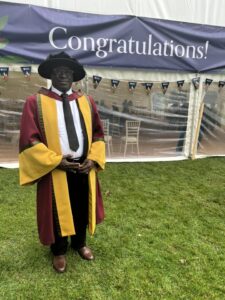 As a student at the University of Bath, I had an impression that the University provides you with the opportunity to gain experience in anything you want. Once you have paid the school fees, you will be helped to become whatever you want with the resources they have. It is up to you to decide how to maximise your learning opportunities, remembering what it costs you to be a student. The University offers you an incredible opportunity to overcome all your academic limitations. My only regret was that I was not a full-time student, as I could not attend some onsite training courses.
As a student at the University of Bath, I had an impression that the University provides you with the opportunity to gain experience in anything you want. Once you have paid the school fees, you will be helped to become whatever you want with the resources they have. It is up to you to decide how to maximise your learning opportunities, remembering what it costs you to be a student. The University offers you an incredible opportunity to overcome all your academic limitations. My only regret was that I was not a full-time student, as I could not attend some onsite training courses.
University Library
Another remarkable observation about the University of Bath is its library’s quality of secondary data. Like most universities in developed countries, the University of Bath’s library has access to the latest peer-reviewed articles, which contain up-to-date discoveries in various fields of knowledge. Moreover, the University, like its European counterparts, has book loan services. So, if the book you need is unavailable in the library, the librarian can loan it to you from another university’s library. Also, through the library, every Student has free access to databases like the Web of Science and Scopus. I was oblivious to these databases until I got to UniBath.
Data stored on these sites are invaluable for literature review, which justifies one’s research question. Unfortunately, only a few Nigerian universities can access these commercially managed databases. The database for most university students in Nigeria is Google and Google Scholar. The sad truth is that the quality of research will be adversely impacted if students or academic staff do not have access to these databases of peer-reviewed journals.
Marking of assignments
I also observed two examiners mark students’ assignments and compare their comments. This reduces the possibility of errors and bias where only one lecturer marks an assignment. This was a pleasant surprise for me because several students, especially females, have been victims of sexual exploitation by randy lecturers in some universities in Nigeria because of a lecturer’s bias or inordinate desires.
Development of critical thinking
One of the major things I learned during my programme was that critical appraisal is the fulcrum of intellectualism. As a student, you are also expected to critically examine any article and risk losing marks if you refuse to criticise any journal article you are asked to review. So, my critical thinking was sharpened at the University of Bath, but I was also taught the difference between constructive and destructive criticism.
Constructive criticism
Critical appraisal is not about finding fault but identifying gaps in any publication and courteously offering alternative options and solutions. If you say the writer’s findings are inappropriate, you should politely defend your statement and state alternate views. Constructive criticism says you should have done it this way for several reasons. Constructive criticism helps the writer to improve himself instead of demeaning the writer.
Academic integrity
Another learning experience was the quality of work expected from a student. The first courses we were taught were on plagiarism and copywriting violations. Using other authors’ words, phrases, or data without appropriately crediting the sources is plagiarism, regarded as academic fraud. If detected, the punishment could be severe, including suspension or expulsion from studies. In Bath, the fear of plagiarism is the beginning of wisdom. All data sources must be cited appropriately to avoid violating the rules.
I do not recall ever being taught or warned against plagiarism during my first degree (1987) or my Masters’s degree (2012) at the University of Lagos, Nigeria. Plagiarism rules are not strictly enforced in Nigeria, where most students’ assignments are copy-and-paste work sourced from Google. In recent years, a common trend in many universities, especially public universities, is that lecturers have commercialised students’ assignments. They give students assignments, charge them a fee to do the assignments for them through a proxy clerical staff and award them spurious marks for assignments they never undertook. This adds to the intellectually weak graduates being churned out.
I reckon the situation is gradually changing in Nigeria, especially with private universities, as students are taught about plagiarism and online software is now being used to check for plagiarism.
Quality of thesis supervision
I was also greatly impressed by the quality of project supervision at the University of Bath. Postgraduate researchers often say that the quality of your supervision is the most determining factor for the success of your postgraduate studies. Though circumstantial, I was privileged to have been supervised by two lecturers, but I believe it impacted my work. My initial Supervisor had resigned from the University, and I was assigned a new one- Professor Nick Townsend. Nick is a perfectionist. He took me through all the rudiments of Doctorate thesis writing.
- The most important lesson I learnt from him was that my thesis had to be structured, and my findings should be based on evidence.
- I needed to cite all sources appropriately; my arguments must be logical.
- I should avoid being polemical in my assertions.
- My research needed to be presented with a standardised reporting protocol to reduce the likelihood of bias.
- I should be consistent with the language and formatting style.
- I also learned that your research findings must answer your research question. Otherwise, you have not succeeded in adding to your knowledge.
Nick is very thorough. He read every chapter, paragraph, phrase, and word, saw the thinnest error, and read and corrected commas, full stops, brackets, semi-columns, numbering, and paragraphs. He has eyes for details. Nick patiently pointed out our errors and gaps without being overbearing and making me lose confidence.
My draft thesis was ready as far back as 2019. Nick started revisions with me in December 2019, and I spent 2 years revising my thesis under his guidance. It was not as if I was looking for new data, but we spent 24 months improving the quality of the thesis presentation. On average, we spent about 3 months revising a chapter. I remain grateful to him for honing my research skills.
My viva voce was an anti-climax. Knowing it could make or mar my research, I seemed over-prepared. The examiners did not find any major/substantial gaps because my Supervisor had guided me to prepare quality work. He will read my draft, make corrections, and return it to me. Sometimes, there were five revisions on a chapter, and we did not move to the next chapter until we were both satisfied that the chapter was professionally written. While preparing for the thesis writing phase, I listened to some University of Bath online videos on thesis preparation. The key message in the videos was that you should respect the views of your Supervisor and take to his corrections.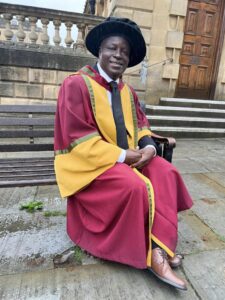
I am eternally grateful for the tutorship I underwent under Professor Townsend because it enhanced my research skills. Of course, I was also patient in learning under him because I realised that having paid such high tuition fees, I needed to maximise the opportunities it offered.
My thesis titled: Evaluation of World Bank/French Development Agency financed Urban Water Reform Programme in Lagos Water Corporation (2005-2017), is accessible here: https://researchportal.bath.ac.uk/en/studentTheses/evaluation-of-world-bankfrench-development-agency-financed-urban
Financial Integrity
One of my pleasant surprises at the University of Bath is that as a Doctorate student, the tuition fees are reduced after you have spent the prescribed minimum years of registration, which was three years in my case.
- If you have produced a draft thesis approved by your Supervisor and require reduced supervisory support or use of the university facilities, you are moved to a ‘writing up status’ and must pay a continuation fee far lower than the initial three-year tuition fees.
- Also, once you have submitted your thesis for examination and do not require supervisory support or use of the university facilities again, you are only required to pay the administrative fee, less than 20% of your initial tuition fees. Even if your thesis is examined and passed, and you can submit a final copy before the end of the session, you are entitled to a refund of the full administrative fee you paid.
- So, in my final year, 2022/2023, I was pleasantly shocked to receive a credit alert from the University of Bath. The University sent me a refund because I had overpaid the administrative, having passed the viva voce and submitted my thesis before the end of the academic session.
I never knew I was entitled to a refund. I did not apply for a refund, but the University system calculated the amount I overpaid and reimbursed. This is a cultural shock because this could never happen in any Nigerian university, including the faith-based one. I admire the honesty and transparency of the British education system.
Other reflections
When I started the programme in 2015, I was forty-nine years old and conscious that my remaining working years were few. I wanted to use my degree to work before I retired and complete the Doctorate as fast as possible. At commencement, I was told that the minimum study duration is three years. I was also told that only one or two people had completed the programme in three years, and the average completion time is four to five years. I told myself I would attempt to complete it in three years. That was not to be, as I eventually spent eight years on the programme.
This is a huge lesson for me in setting targets on impulse without considering all the variables. I was wrong to set a three-year target when I had not analysed the task’s enormity and my capacity to cope. Of course, I am happy that I pursued and achieved my dream despite the drag. One big lesson I learnt is that you should not be too ambitious; success sometimes comes through patience and perseverance. It is not necessarily how fast but how well.
My challenges
I had challenges paying my tuition by the third year, 2018/2019. So, I applied for one year’s academic suspension. This turned out to be two years because even when I resumed academic studies in the fourth year, 2019/2020, I could not pay my school fees until the last week of the academic session. Between September 2018 and September 2020, I did not benefit from supervisory support because I could not pay tuition fees. No thanks to the falling value of Nigeria naira compared to the British pound. The exchange rate was one pound to 450 naira in 2015 when I started the programme, but in 2023, it was one pound to almost 1000 naira. Effectively, I lost two years to the inability to pay tuition. Perhaps I could have graduated in 2019 because I had finished gathering my data in 2018.
When I eventually resumed my studies in 2020, my academic and practice-based supervisors helped me revise my draft thesis painstakingly. I submitted a final draft thesis in March 2022. A suitable internal and external examiner could not be found for me until September 2022. I held a successful Viva on November 17, 2022. I submitted a final thesis incorporating the minor corrections recommended by examiners in January 2023. the Doctorate College awarded me a Doctor of Health on March 29, 2023, and my convocation occurred on July 14, 2023, by the grace of God.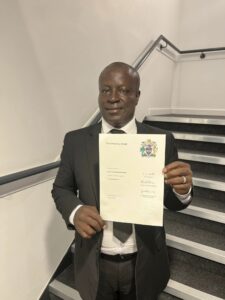
Conclusion
Overall, I’m confident I got value for my money as I benefited from world-class university standards. I thank my family, who urged me to go on in thick and think, and colleagues for the 2015 professional Doctorate in Health Programme, who provided moral support. I also remain grateful to the Head of Department of Health, University of Health- Dr David Wainwright, who took a personal interest in my water-related area of study; my practice-based Supervisor- Professor Oladapo Longe of the Department of Civil Engineering, University of Lagos, Nigeria; my internal examiner, Professor Jan Hofman, of the Department of Chemical Engineering, University of Bath, U.K.; and the external examiner, Dr Carel Dieperink, Senior lecturer and researcher at Copernicus Institute, Utrecht University, Netherlands.
Lastly, God made this happen. Faith in him provided the work to pay the fees, the sound Health to start and finish, the favour to overcome all hurdles, and the wisdom to undertake the study. To him be all the glory.
Though it eventually took five years more than my targeted 3 years, my Doctorate programme at the University of Bath was a tremendous learning experience and overall attainment of my professional pursuit, all to the glory of Jesus Christ!
Dr Babatope Babalobi, https://www.linkedin.com/in/babatopebabalobi/, a Water, Sanitation, and Hygiene (WASH) specialist, writes from Lagos, Nigeria. [email protected] +234 8035 8974 35 Student Number: 159211412
Leave a Reply